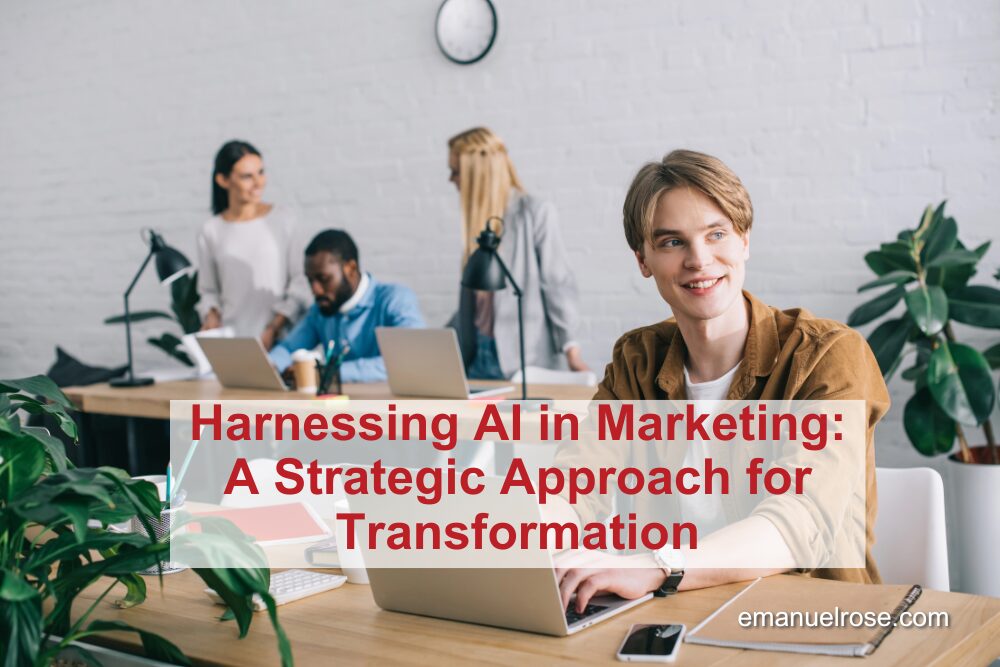As businesses navigate the complexities of a digitally driven landscape, the role of AI in shaping marketing strategies has become paramount. Nuri Cankaya, a seasoned marketing executive at Intel, offers a compelling framework for integrating AI into marketing operations, emphasizing the necessity for businesses to adapt for sustainable growth.
Strategic Insights from the AIM Framework
At the core of Nuri’s approach is the AIM framework: Assess, Implement, and Measure. This three-step strategy serves as a practical guide for marketers looking to integrate AI into their daily workflows. “AI is going to be everywhere, including marketing,” Nuri emphasizes, highlighting that those who embrace these transformative tools will not only survive but thrive in the competitive market landscape.
Businesses should begin by evaluating their current marketing efforts and identifying areas where AI can improve efficiency and effectiveness. Implementation may involve utilizing AI-driven tools such as chatbots for customer engagement or AI platforms for content generation, akin to using HubSpot for account-based marketing. Finally, measurement is crucial; tracking performance metrics will provide insights into the effectiveness of AI initiatives, allowing for iterative optimization.

Tangible Implementation Strategies for Businesses
For many businesses, particularly those in mid-market segments, the question arises: how to effectively begin implementing AI? Nuri advises leveraging readily available and user-friendly tools. For instance, platforms like Jasper AI can generate customized content tailored to specific marketing needs, eliminating the need for extensive technical knowledge. Similarly, Microsoft’s Copilot integrates AI into familiar applications, enabling users to streamline workflows and focus more on creative strategy.
Consider a small business such as a local coffee shop. By utilizing AI to automate social media posts and track customer engagement metrics, the shop can develop a more personalized marketing strategy while saving time and resources. Just as larger enterprises benefit from sophisticated algorithms, smaller companies can harness the same power using scalable, accessible solutions.
The Broader Impact on Industries
The implications of adopting AI technologies extend far beyond marketing departments. Industries across the board are being transformed by AI, resulting in increased personalization, efficiency, and strategic agility. As businesses begin to integrate these tools, the focus shifts towards enhancing customer experiences through targeted campaigns based on real-time data insights. This shift not only strengthens customer relationships but also empowers organizations to future-proof their strategies against market fluctuations.
Nuri’s insight into the evolution from generative AI to agentic AI—where AI systems can autonomously manage multiple tasks—means that even small firms can access capabilities previously exclusive to large corporations. As these technological advancements unfold, companies prepared to adapt will find themselves at a distinct advantage.


Next Steps for Leadership Consideration
Leaders looking to harness the benefits of AI should start by testing out various tools that fit their organizational needs. Begin with one or two applications that show promise in enhancing productivity or engagement. Establish a culture of continuous learning around AI tools, enabling teams to upskill and remain agile in the face of technological advancements.
In closing, the integration of AI into marketing strategies is no longer optional; it’s essential. To maintain a competitive edge, businesses must embrace these technologies, adjust their tactics, and refine their approach to meet the demands of tomorrow’s consumers.
Guest Spotlight: Nuri Cankaya
LinkedIn: Nuri Cankaya
Company: Intel
Watch the podcast episode featuring Nuri Cankaya: youtu.be/ussIXgDm5RQ

